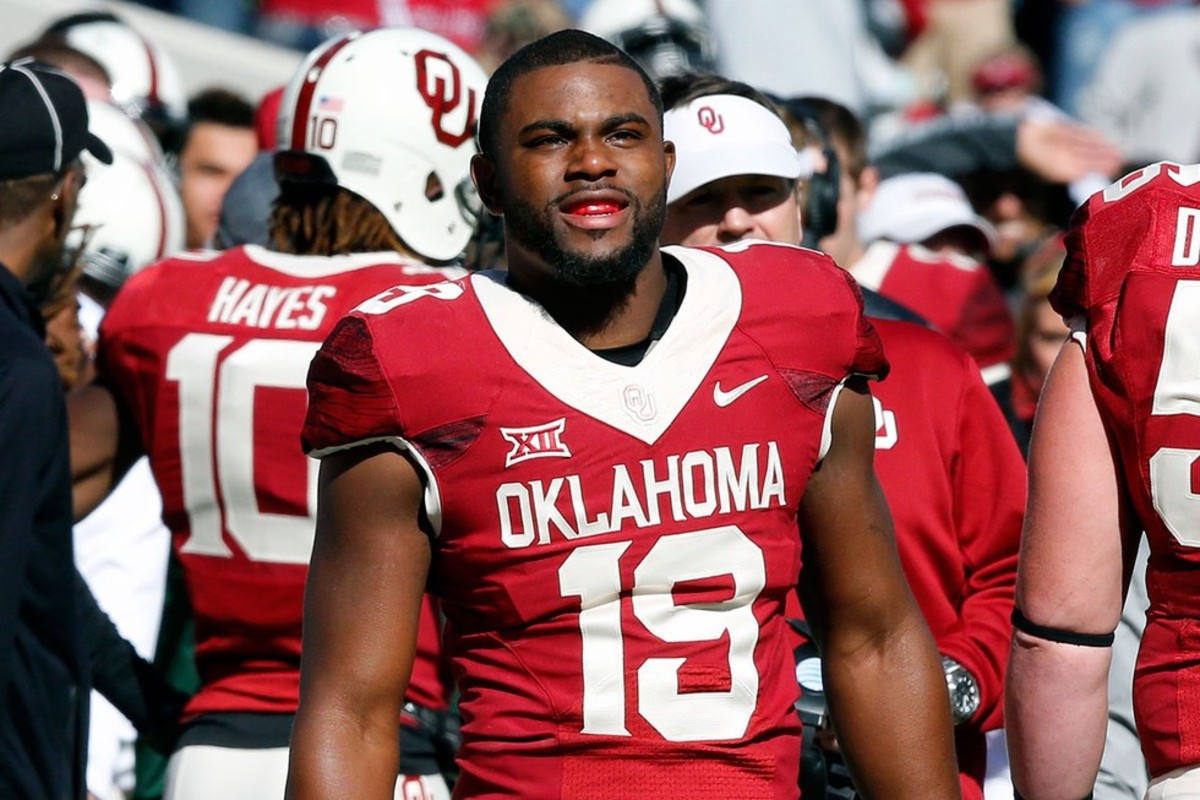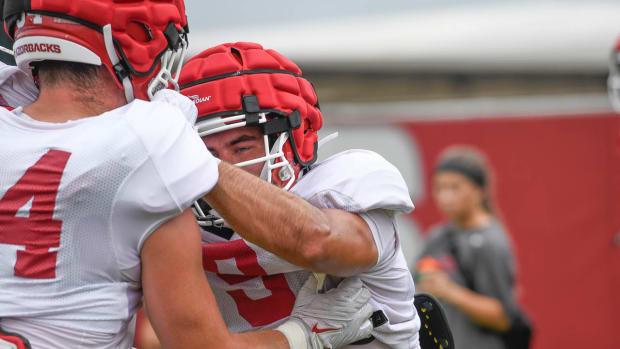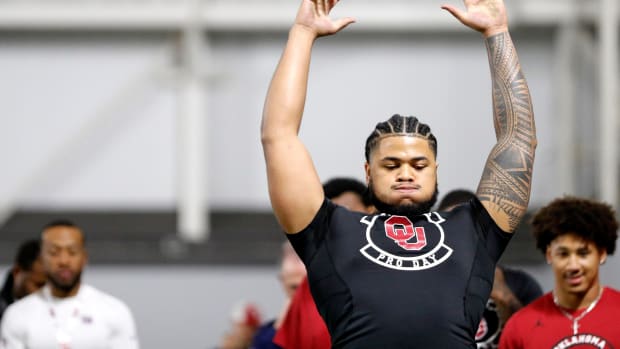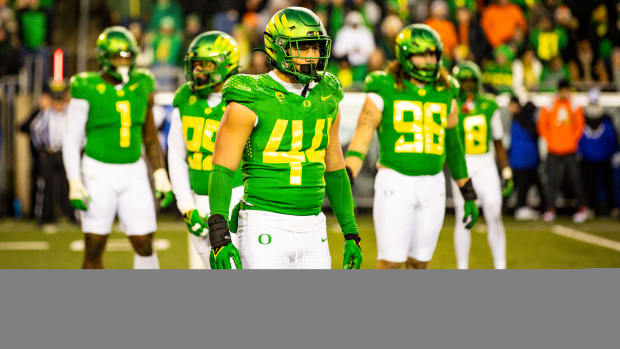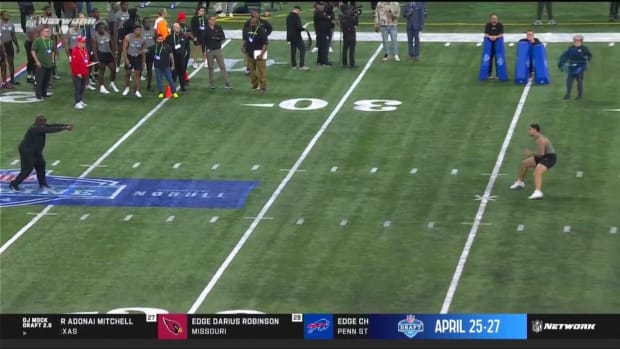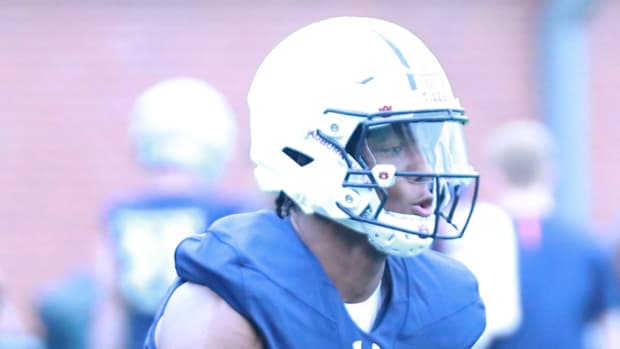Why I'll never 'stick to sports': The reason I embrace my role as an athlete who stands up for social change
The first time I learned about Muhammad Ali—who he was as a man, what he stood for, all he accomplished as an athlete and an activist—I decided I wanted to be like him. That man, he's my hero. When I was 12, I watched the movie Ali, and I saw Will Smith play a character who was a little full of himself, talked a lot, predicted stuff, backed it up and wasn't afraid to be who he was. Ali was himself, and that struck me.
When he stood up for his people by refusing to take part in the Vietnam War, saying we had problems to address domestically right here in America, that was huge. He explained his decision with a question: If white people kept denying basic human rights to black people in the United States, why should he go fight on those people's behalf? His leadership resonated with civilians around the world. Wherever he went—the Philippines, Russia, Africa—people wanted to be around him, to touch him. People thought, Oooh, he's bold, and loved him for it.
I thought about Ali last spring when I spoke out about the racial tension in this country, and on my campus, after the Sigma Alpha Epsilon fraternity video with members chanting, "There will never be a n----- in SAE," went viral. When I did that, I heard from people all around the world who thanked me, telling me we need to talk more about these issues. Some people reacted by saying I should "stick to sports." To those people I say: You need to understand that I'm more than just an athlete.
Sue Ogrocki/AP
When you see No. 19 on the field for Oklahoma, when you see STRIKER printed on the back of my jersey, how would you describe me to people? Most people would probably say that I'm 6-feet, 220 pounds, and a linebacker who has good speed off the edge. Most would probably talk about what I do on Saturdays. But I don't want to be described that way. I want people to say I'm a humorous, energetic, thoughtful guy. I want people to know me for who I am, not for what I do.
I grew up in a house where we sat around the dinner table and spoke the truth: In my family, we talked about what it's like to be a black man in America, what it means and the experiences it brings. I learned early on that stereotypes are everywhere—and not just racial stereotypes. As an athlete, I get stereotyped all the time. I'll be in the library and people will say, "You know what a library is?" Yes, thank you. Athletes do their work, too. And when necessary, we speak up. As a young man I thought, I'm gonna change the world, but I didn't know how. Now I have a platform and a voice people want to hear. Why would I stop talking?
What you have to understand is that so many things are bigger than sports. One thing that's true, and this is sad, is that in this country the game of football is a bigger priority than fixing the racial divide. Sometimes the attitude is, As long as my football team is playing, I'm happy. I get it: Athletes struggle between devoting time to social justice and devoting time to their craft. Both are important and it isn't easy to find a balance. But what I do know is this: Football will come to an end some day. What will stick around are relationships.
There's a big difference between tolerance and acceptance. Tolerance means "I'm going to deal with this because I have to." Acceptance means, "I've thought about this, I've educated myself and I embrace it." Words are powerful, and we have to remember that every time we walk into a new situation. Together, we all have to strive to accept others, not to simply tolerate them. When people get to college, they are introduced to so many new cultures, beliefs and backgrounds. Sometimes they get more of an education outside the classroom than in it. At the end of the day it's about respect: respecting others and respecting their beliefs. What better feeling is there than saying, I became a better person, a more complete human being, because today I learned about this nation, this religion or this background?
Icon Sportswire via AP Images
Lots of people have preconceived notions and that's O.K. It's human nature. Think about when you were in high school, how easy it was to have a narrow viewpoint because it was the only thing you knew. But when you put a diverse group of people in a room and they all come together, they can eliminate those types of thoughts. That's the beautiful thing about a team, and that's what we have here at Oklahoma. It only takes one person changing their thinking to break a chain of hatred and shatter stereotypes. If my choice to speak out sparks just
one conversation, that means I have done some good.
I saw the protests at Missouri in November, and it spoke to the progress we are trying to make. As young athletes, we're just starting to realize the power that we have. Sometimes it's necessary to step up and stop the game in order to to say something meaningful. I look at someone like LeBron James—he has the whole city of Cleveland following him. His platform is humongous. I'm glad he speaks up about racial issues, because we need him. But we need other athletes, too, and it's more than just African-Americans who should talk. If we truly want to bring about change, to make this country better, everyone has to stand up. Together. And that starts with talking.
Sports can be an avenue for social change. We saw that with Ali, my hero. Maybe in 25 years, it won't have to be like this. Maybe it won't be rare for an athlete to take a stance for social justice, or we won't have to take a stand because race relations will finally be in a better place. But don't talk to me about how much progress we've already made. Let's have a conversation, together, about how much further we can go.
And don't ask me to shut my mouth or "stick to sports." I'm a man who was raised to follow his heart, to strive for greatness and equality and to speak his mind. I'll never change who I am—and who I am is more than just an athlete.
